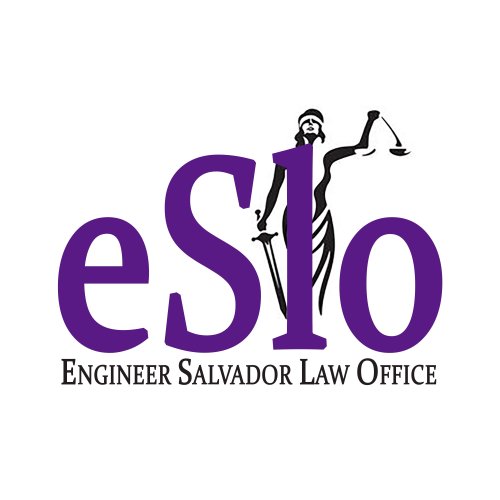Best Public-Private Partnerships (PPP) Lawyers in Cavite City
Share your needs with us, get contacted by law firms.
Free. Takes 2 min.
List of the best lawyers in Cavite City, Philippines
About Public-Private Partnerships (PPP) Law in Cavite City, Philippines
Public-Private Partnerships (PPP) are agreements where the government collaborates with private sector entities to finance, construct, operate, and maintain projects that provide public services or infrastructure. In Cavite City, PPP is viewed as a strategic approach to promote development, modernize local infrastructure, and enhance public services without placing the full financial burden on the government. These partnerships can cover sectors such as transportation, water supply, housing, healthcare, education, and more. The legal basis for PPPs in the Philippines is mainly governed by the Republic Act No. 6957, as amended by Republic Act No. 7718, also known as the "BOT Law", along with relevant local ordinances issued by the Cavite City Government. These regulations ensure transparency, fairness, and mutual benefit for both public and private parties.
Why You May Need a Lawyer
Engaging in a PPP project can be complex, involving intricate contracts, regulatory requirements, and significant investments. Here are common situations where you may need legal assistance:
- If you are a private company considering investment in a local infrastructure project in Cavite City.
- If you represent a government agency or local government unit (LGU) that wants to structure a PPP agreement.
- If you need help drafting or negotiating the terms of a PPP contract.
- If you require advice on the bidding or procurement process mandated by law.
- If you are facing disputes or issues regarding the implementation of an existing PPP project.
- If you are concerned about compliance with local and national laws governing PPPs.
- If you need to interpret complex regulations or policies relating to financing, risk sharing, or ownership in PPP projects.
Local Laws Overview
Cavite City follows national PPP laws while integrating its own ordinances and policies. Here are the key local legal frameworks and guidelines relevant to PPPs in Cavite City:
- Republic Act No. 6957 as amended by RA 7718 (BOT Law) - Sets the guidelines for Build-Operate-Transfer and similar PPP schemes in the Philippines.
- Cavite City PPP Ordinance - Provides detailed procedures, requirements, and processes specific to the locality, ensuring that projects align with the city's development goals.
- Implementing Rules and Regulations (IRR) - The IRR of the BOT Law and local PPP ordinances detail the step-by-step processes for solicited and unsolicited projects, bid requirements, risk allocation, and timelines.
- Procurement Laws - Compliance with the Government Procurement Reform Act (RA 9184) may be necessary depending on the PPP model and project structure.
- Environmental, Social, and Other Compliance - PPP projects must consider environmental impact assessments, zoning regulations, and ethical labor practices in Cavite City.
It is essential to understand both the national framework and the specific regulations adopted by the local government of Cavite City to ensure lawful and successful PPP engagements.
Frequently Asked Questions
What are Public-Private Partnerships (PPP) in Cavite City?
PPPs in Cavite City are cooperative arrangements between the local government and private sector entities to develop, finance, build, and operate public infrastructure or services that benefit the community.
What types of projects are covered under PPP in Cavite City?
Projects may include roads, bridges, schools, hospitals, housing, waste management facilities, water and power systems, and other infrastructure or social services.
Who initiates PPP projects in Cavite City?
Either the local government or interested private sector proponents can propose PPP projects. Projects can be solicited or unsolicited depending on who initiates.
Are there specific requirements for private companies wanting to join PPP projects?
Yes, companies typically need to demonstrate technical, legal, and financial capability, comply with pre-qualification criteria, and follow the processes set by the city government and national agencies.
What is the difference between solicited and unsolicited PPP projects?
Solicited projects are initiated by the government and opened to public bidding, while unsolicited proposals are initiated by private entities and evaluated separately under established guidelines.
Does the local government provide financial guarantees in PPP projects?
Financial guarantees and government support are allowed but must comply with legal provisions. Each PPP agreement outlines the extent and terms of such support.
Can foreign companies participate in PPP projects in Cavite City?
Foreign firms may participate subject to constitutional limitations, nationality requirements, and specific guidelines on foreign ownership and management for certain projects.
How are disputes in PPP projects resolved?
Disputes are typically resolved through negotiation, mediation, or arbitration as agreed in the PPP contract and following Philippine law.
How long do PPP projects usually last in Cavite City?
Project durations depend on the nature and scale but often range from several years up to decades, as specified in each contract.
What legal risks are associated with engaging in PPPs?
Risks include regulatory compliance, potential changes in law, financial exposure, disputes over contract execution, and community opposition. Consulting a lawyer helps manage and mitigate these risks.
Additional Resources
If you need more information or support regarding PPPs in Cavite City, consider the following resources:
- The Cavite City Local Government Unit (LGU) PPP Office or Investment Promotion Office for local ordinances and project opportunities
- Public-Private Partnership Center of the Philippines for national guidelines, capacity building, and technical support
- Philippine Government Electronic Procurement System (PhilGEPS) for updates on PPP project bidding
- National Economic and Development Authority (NEDA) for information on national infrastructure plans involving PPPs
- Private legal firms in Cavite City specializing in commercial law, infrastructure, and PPPs
Next Steps
If you are considering involvement in a PPP project in Cavite City, begin by gathering as much information as possible regarding the relevant laws, project scope, and requirements. Consult the Cavite City LGU and the PPP Center for initial guidelines and opportunities. Schedule a consultation with a lawyer who specializes in PPP, government contracts, or infrastructure investments to assess your options, clarify legal obligations, and assist with documentation. Prepare the necessary documents, identify your objectives, and follow the formal processes outlined by local and national authorities. Early legal guidance will help you navigate risks and ensure compliance, maximizing the chances of a successful PPP venture.
Lawzana helps you find the best lawyers and law firms in Cavite City through a curated and pre-screened list of qualified legal professionals. Our platform offers rankings and detailed profiles of attorneys and law firms, allowing you to compare based on practice areas, including Public-Private Partnerships (PPP), experience, and client feedback.
Each profile includes a description of the firm's areas of practice, client reviews, team members and partners, year of establishment, spoken languages, office locations, contact information, social media presence, and any published articles or resources. Most firms on our platform speak English and are experienced in both local and international legal matters.
Get a quote from top-rated law firms in Cavite City, Philippines — quickly, securely, and without unnecessary hassle.
Disclaimer:
The information provided on this page is for general informational purposes only and does not constitute legal advice. While we strive to ensure the accuracy and relevance of the content, legal information may change over time, and interpretations of the law can vary. You should always consult with a qualified legal professional for advice specific to your situation.
We disclaim all liability for actions taken or not taken based on the content of this page. If you believe any information is incorrect or outdated, please contact us, and we will review and update it where appropriate.











